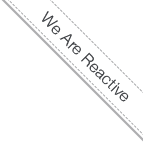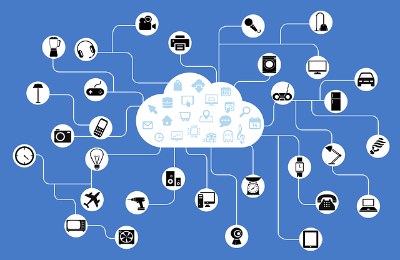What is Internet of Things (IoT)?
The Internet of Things (IoT) refers to the increasing networking of devices, sensors, etc. with the IP addresses known from computer networks (Internet Protocol), often with a cloud-based backend. Many elements of the Internet of Things have already found their way into our daily lives, such as the home automation (smart home) or the closer networking of decentralized electricity producers and consumers via smart city meters, for better utilization of existing networks or Prediction and cushioning of recurrent load peaks.
Another IoT technology under test is the self-driving car, where established market leaders face new challengers like Tesla and Google.
Building elements of the Internet of Things
Characteristic for the IoT is the autonomous data exchange of networked physical objects. This involves huge amounts of data when the locations and interactions of subscribers in the IoT are about to be monitored in order to draw further conclusions or to use algorithms to initiate certain further actions. A good example for this is the congestion forecasts and avoidance from the data of autonomous vehicles which are today already processed in the background in anonymous form in the cloud via Smart Phones with GPS.
In the Internet of Things, the individual participants (things) must be uniquely addressable. This can happen, for example, via RFID or WLAN with IPv6, whereby the increasing miniaturization of processors and sensors opens up many new possibilities, which seemed unthinkable just a few years ago. Although some concepts have long been familiar to us: for monitoring, counting and localizing, we know the tracking codes of parcels, the ubiquitous barcodes and QR codes in trade & logistics such as baggage reclaim at the airport - whereby the participants without any kind of intelligence only act as components of a software-based overall system.
Only the increase in computing power and the accompanying miniaturization of the hardware make it possible today to equip the participants of the Internet of Things with a certain intelligence and logic in form of embedded software. So they can act autonomously and communicate with each other as participants in a distributed system as well as autonomously make local decisions, negotiate or act together.
IoT solutions from one provide
At Clouds Sky, we offer our customers the full breadth of technology and knowledge needed for IoT applications. Whatever your concept of an IoT based system, we help you to implement it:
1. We build the best cloud platform for your Internet of Things application
2. We program for all participating target platforms in the Internet of Things: from the embedded software for actuators and sensors to the autoscaling distributed cloud application
3. Processing and evaluating the data (e.g. sensors) in your IoT solution with big data solutions, such as Hadoop as a Service
4. Interfaces for connecting the Internet of Things application to various software systems, search engines such as Solr or Elastic Search, e-commerce platforms or app development for display and control.
Tell us about your IoT idea - we will find a solution
Über Stuttgart
Stuttgart ist mit etwas mehr als 600.000 Einwohnern die sechstgrößte Stadt Deutschlands. Als Baden-Württembergs Landeshauptstadt ist Stuttgart Sitz der baden-württembergischen Landesregierung, des Landtags und vieler Landesbehörden.
Mit ca. 1500 ansässigen kleinen und mittleren Unternehmen ist die Region Stuttgart ein Zentrum des deutschen Mittelstands. Viele der Unternehmen sind Zulieferer der großen Automobilkonzerne Daimler und Porsche, die ihre Zentrale in Stuttgart haben. Weitere große Firmen sind Bosch (Hauptstandort) sowie Kodak, Lenovo, Siemens und Züblin. In Stuttgart und dem Speckgürtel haben sich viele Hightech-Unternehmen angesiedelt und insgesamt zählt Stuttgart zu den einkommensstärksten und wirtschaftlich bedeutendsten Städten Deutschlands und Europas.
Stuttgart hat die Vorwahl 0711 und Postleitzahlen zwischen 70173 und 70619.
We are offering you Internet of Things (IoT) solutions also at:
Aachen, Düsseldorf, Frankfurt, Hamburg, Hannover, Köln, Leverkusen, München, MünsterLet's Talk
Feel free to call us at anytime, we're looking forward to hearing from you:
Phone: +49 221 960 28 202
[email protected]


